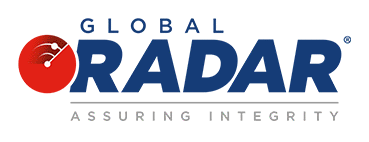When assessing the 2017 fiscal year at the international level, many can recall the European Union’s (EU) Money Laundering, Terrorist Financing and Transfer of Funds Regulations 2017 (MLR2017) coming together rather expeditiously earlier this summer. Following two distinct rounds of consultation and revision between late 2016 and early 2017, the proposed regulations were presented to parliament just one day prior to the deadline for the legislation to come into effect. In replacing the previous MLR from 2007, a series of structural changes and an evolution in content were necessary in order for the legislation to be up to date with the current practices and developments seen in today’s financial realm. However, this significant amount of change in such a short period of time left financial institutions (FI’s) regulated by MLR2017 scrambling to update and improve their compliance procedures to meet their new requirements. Nonetheless, these regulations represent a notable trend that has impacted the financial services industry of late, one that has seen AML legislation and a risk-based approach to compliance becoming one of the driving forces behind the financial security movement that has arisen since the turn of the century.
Those contributing to MLR2017 set out to change several of the faults and inadequacies found in its predecessor, MLR2007, as well as to override antiquated aspects of the prior regulations. Some of the key points that the new legislation was created to address were improvements in the approach to customer due diligence (CDD), the transparency of the beneficial ownership structure of companies, the enforcement of sanctions and other penalties, and most importantly the prevention of new forms of financial crime and terror financing, an area that has progressively advanced since the inception of the previous MLR. The article “The UK’s new money laundering regime”, cited in BSA News Now on October 18th, 2017, analyzed other important updates to the latest MLR, and touched on their potential impact on Europe’s financial system altogether. In promoting the aforementioned risk-based approach, there will be a greater reliance on thorough risk assessment of both businesses and individuals, as well as the policies and procedures of these entities to ensure they are commensurate with potential risks. According to the article, these assessments should be comprehensive in order to avoid error and “such assessments should take account of all business relationships, and consider factors such as the geographic location of customers, the products and services, as well as the nature and type of transactions and delivery channels in which the business and its customers are engaged” (Amaee & McSweeney, 2017). These responsibilities should fall on senior management or experienced compliance officials, who will also be tasked with providing adequate training on risk mitigation and reporting obligations to staff members.
Other areas covered in MLR2017 include both standard and enhanced due diligence. In 2017, it seemingly goes without saying that appropriate due diligence must be performed prior to the establishment of new business relationships, as well as in situations where there have been changes in corporate structure or services offered. However, failures in this regard continue to be rather prevalent across the globe. As a result, MLR2017 has upped its due diligence requirements to combat the potentially detrimental failures that can ensue if proper due diligence procedures are not practiced. These requirements include more widespread information collection that must now include the names of all senior management, in addition to other vital information such as name, registration number, address and place of business, and the law to which it is subject. In addition, all individuals acting on behalf of customers must also be obtained and verified. In cases where significant risk is identified, such as those potentially related to money laundering, enhanced due diligence (EDD) efforts must be incorporated to mitigate risk. Contributing factors that can be considered as “risky” and could warrant EDD include situations when “the customer business relationships are conducted in unusual circumstances; the customer is a resident in a region considered high risk; the business relationship is or appears to be a vehicle for holding personal assets; the customer is a cash intensive business; the corporate structure is unusually or excessively complex or diffuse; or payments are offered or received from unknown third parties” (Amaee & McSweeney, 2017). The new legislation requires increased scrutiny on activity of this nature, as well as the investigation into the validity of the information provided by the customer. Enhanced due diligence also applies when dealing with politically exposed persons (PEP’s), and both the term and the requirements now also apply to family members and close associates of the individual in question.
MLR2017 also adds to the overall scope of AML-related penalties seen today. A new criminal charge was added to the legislation that governs “any person who recklessly makes a false or misleading statement in the context of a money laundering investigation can now be punished by a fine, a maximum of two years imprisonment or both” (Amaee & McSweeney, 2017). While still in its early stages, the new regulations appear to have covered some of the more problematic areas of regulatory compliance, which bodes well for the future of those operating in the EU’s financial sector. The challenge will now be for institutions governed by MLR2017 and their employees to become familiar with these updates and acclimate themselves to a new regulatory climate, one that they will be growing accustomed to over the next decade.
Weekly Roundup
Wells Fargo’s Latest Million-Dollar Fine
The world’s second largest bank by market capitalization had a genuine “case of the Monday’s” on October 16th, as the Financial Industry Regulatory Authority (FINRA) announced its latest in a series of fines levied against the company. Prominent U.S. bank Wells Fargo & Co. was issued an order to pay a reported “$3.4 million in customer restitution related to investment advice provided from July 2010 to May 2012 by Wells Fargo Clearing Services LLC and Wells Fargo Advisors Financial Network LLC” (Craver, 2017). The issue at hand involved officials from the organization offering recommendations to customers on volatility-linked exchange-trade products (ETP’s), recommendations that were allegedly made without the officials having a comprehensive understanding of the products and the risks involved with potential investment. According to reports, the main fault of the Wells Fargo representatives was in “mistakenly believing that the products could be used as a long-term hedge on their customers’ equity positions in the event of a market downturn” (Craver, 2017).
FINRA discovered that Wells Fargo was unable to implement an adequate system of supervision for the sales of these and similar products over the two-year period, although the bank did move to correct its insufficiencies in this regard in mid-2012. While Wells Fargo has yet to admit to or deny the allegations against them, FINRA has stated that the transnational corporation provided tremendous assistance to the agency during its investigation, including “engaging a consulting firm to determine the appropriate restitution to be provided to affected customers” (Ong & Condon, 2017).
Inaugural Licensed Swiss Bitcoin Company Announced
After months of lobbying and substantial time and resource investment, rising Bitcoin company Payment21 became the first third-party processor to become licensed as a Directly Subordinated Financial Intermediary (DSFI) in Switzerland. The company, now directly overseen by the Swiss Financial Market Supervisory Authority (FINMA), will now be forced to be in compliance with both Anti-Money Laundering (AML) and Know Your Customer (KYC) regulations. Payment21 has a great track record of providing premium exchange services to e-commerce merchants and businesses across the globe, in addition to well-received regulatory technology (RegTech) developments. The company has offered AML and audit-compliant Bitcoin processing services for years, and also presents “custom-made Fintech solutions and sophisticated integration modules to regulated companies such as payments institutions, publicly-listed corporations and traditional banks” (CalvinAyre, 2017).
In making its final admission decision, FINMA analyzed the company’s business model as well as its past compliance with AML laws. In a statement released on the announcement, an exuberant Bernhard Kaufmann, Managing Director of Payment21, said, “we are committed to meeting the legal requirements of the Swiss financial marketplace. Our handling of compliance issues enriches the digital currency ecosystem, and demonstrates that Swiss regulators embrace competitiveness in financial services, and truly encourage Fintech innovation in the digital era” (CalvinAyre, 2017).
Danish Bank Involved in Russian Laundering
In a surprising revelation, Danske Bank, Denmark’s largest bank, was found to play a major role in a Russian money laundering scam dating back nearly a decade. A lower court in France stated “the bank’s branch in Estonia helped to move €15 million of ‘money from organised fraud and tax evasion’ in Russia into France and other EU jurisdictions between 2008 and 2011” by way of multiple transactions (Rettman, 2017). The transactions are thought to have been made in order to disguise the ultimate destination of the illicit funds, while at the same time benefiting the bank. While fines and potential sanctions are likely on the horizon for Danske Bank, the true damage to the company may ultimately lie in the profound blow to the financial institution’s reputation.
The latest incident comes less than a month after the FI admitted “that its Estonian operation took part in an Azerbaijani money-laundering scheme” (Rettman, 2017). As of now, the bank’s shares continue to trade at a normal level; however this trend is not expected to last for much longer, as news of the bank’s ties to illicit activity of this nature have already begun to spread across international media outlets. Danske representatives have yet to publicly address the allegations, though the bank’s top lawyer has stated that they “are not presently in a position to say whether the amounts [the Russian €15 million] came from illegal activities”(Rettman, 2017). The bank has reportedly hired the former intelligence chief of Denmark to investigate the events.
Citations
Amaee, Robert, and James McSweeney. “The UK’s New Money Laundering
Regime.” Financier Worldwide. Oct. 2017. Web.
“Feds Order Wells Fargo To Pay $3.4M In Fines.” InsuranceNewsNet. Winston-Salem
Journal, 17 Oct. 2017. Web.
“First Official License for a Swiss Bitcoin Company.” CalvinAyre.com. 17 Oct. 2017.
Web.
Ong, Michelle, and Nancy Condon. “FINRA Orders Wells Fargo Broker-Dealers to Pay
$3.4 Million in Restitution and Reminds Firms of Sales Practice Obligations
for Volatility-Linked Products.” FINRA.org. 16 Oct. 2017. Web.
Rettman, Andrew. “Danish Bank Accused of Russia Money Laundering.” EUobserver.
13 Oct. 2017. Web.

